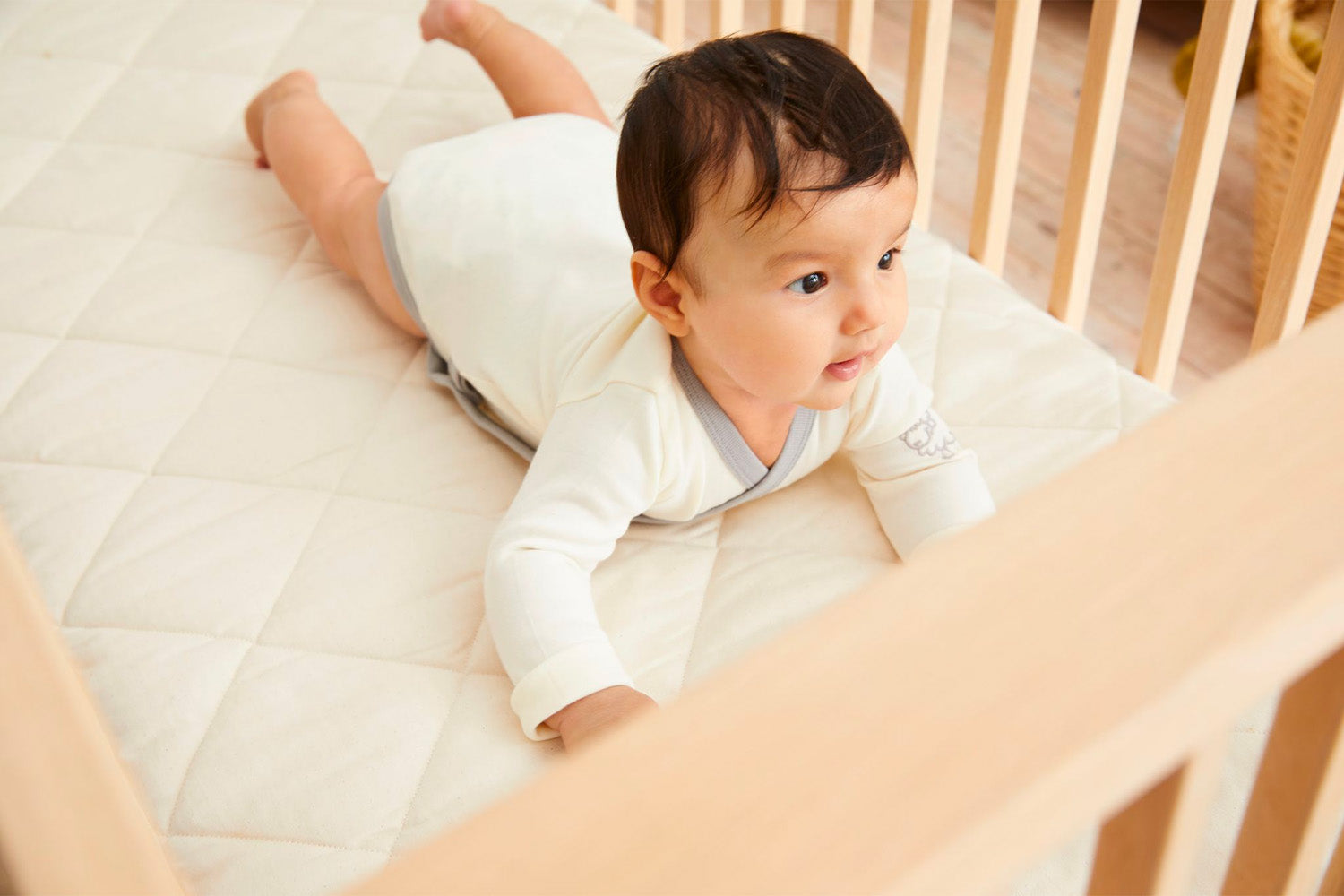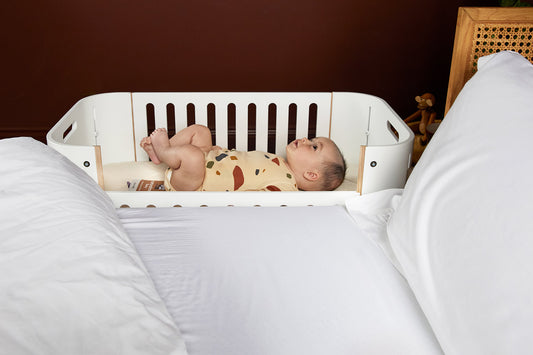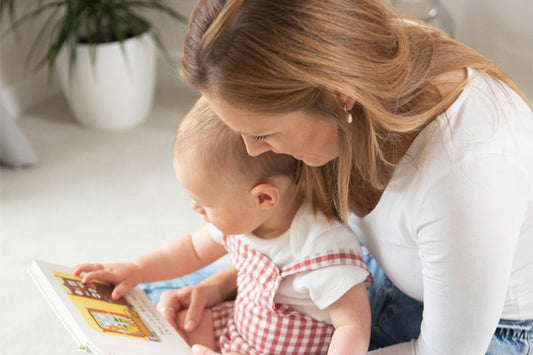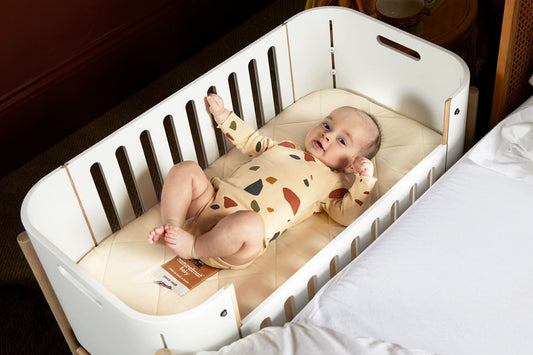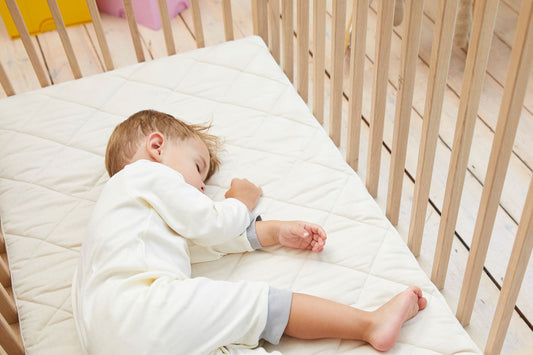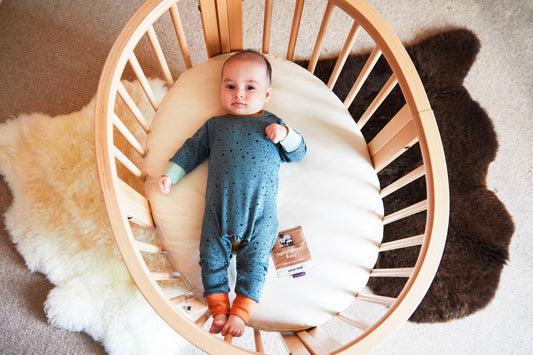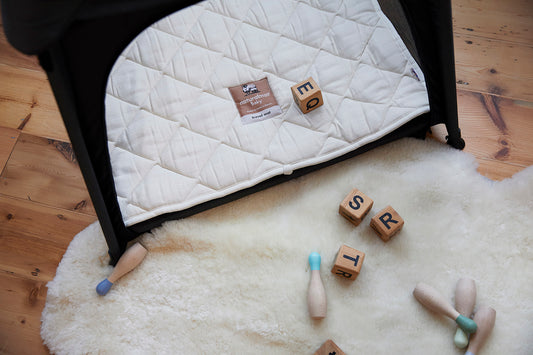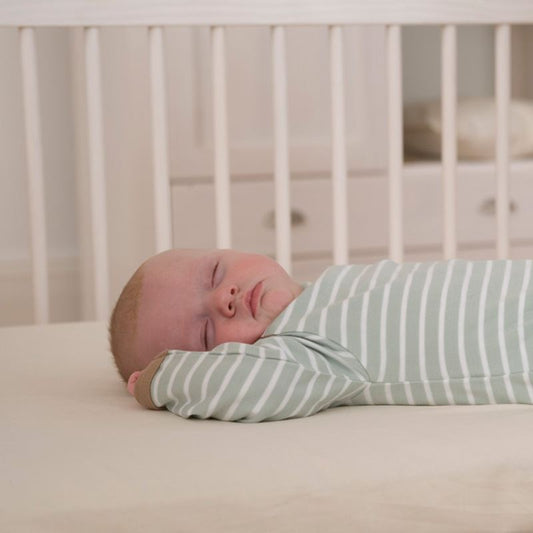Early rising can be both a blessing and a challenge for parents and carers. While it signifies the beginning of a new day (offering opportunity for quality family time), if your little ones wake up at the crack of dawn it can also leave you feeling groggy and exhausted. But why is your baby waking up so early?
We're delighted to have teamed up with Lucy, founder of early years consultancy NEST, to discuss some practical strategies to help you and your child navigate this early morning adventure. Whether you're a seasoned parent seeking new solutions, or a parent-to-be hoping to be prepared, this blog will provide ample advice to make those early mornings a little bit easier.

Why does my child wake early?
Before we get into this question, it's important for us to reassure you that it is very common for young children to wake early in the morning. Most babies start off as early risers, with their waking time gradually increasing as time goes on.
Our wake-sleep cycle is controlled by two main biological forces: our circadian rhythm, and our homeostatic sleep drive (or sleep pressure - the level of tiredness which builds during awake periods, and reduces during asleep periods).
In young children, the circadian rhythm is typically up and running at around 3 months old, but it will take another 3 months or so until it is more or less fully developed. This means that for at least the first six months of their life, sleep pressure is the main driver of sleep.
So, without a fully developed circadian rhythm, and relying mostly on sleep pressure to dictate when they sleep, young children are prone to being early risers. It's that simple, and it's completely normal!
However, there are some strategies you can employ to support your baby to sleep for longer at night, encouraging them to wake up later. Begin by asking yourself the following questions:
Is their bedroom too light?
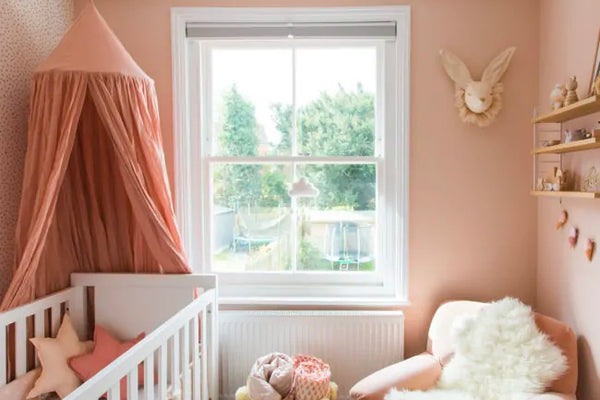
One reason your baby is waking up so early could be the amount of light in their bedroom. A bright bedroom could be disturbing your little one's sleep - especially during the lighter Spring & Summer periods. Because melatonin - the natural hormone responsible for sleep - is only released in the dark, sleep pressure is very low when we sense daylight.
Therefore, we recommend treating your child's nursery with blackout curtains and blinds - these are a great way to tackle the daylight problem, and some blackout blinds even have a built-in thermal barrier to help prevent the room's temperature from changing too dramatically.
Our friends at Loom & Last (@loom_and_last on Instagram) have a great selection of roman blinds, roller blinds & curtains made from sustainable and natural materials where possible.
Are they being disturbed by noises?
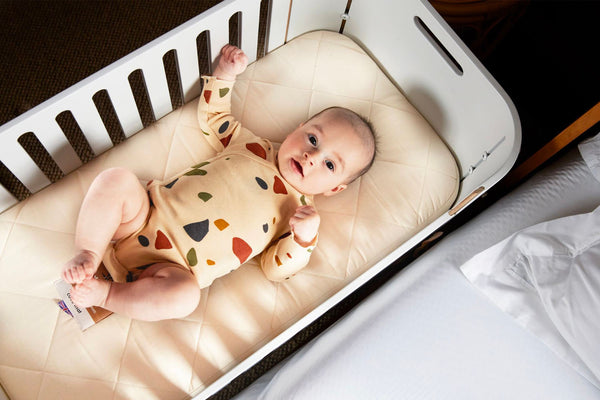
Another reason your baby is waking up so early could be to do with the noises in their sleep space. With an underdeveloped circadian rhythm, newborns and babies are naturally restless sleepers, going through a range of sleep cycles of various intensity throughout the night. This means that, at times, the slightest noise can rouse them - sometimes fully waking them from their slumber.
In this case, it's important to take note of the various sounds in and around their bedroom which could be causing them to wake. Here are some examples of sounds which could be affecting their sleep:
- Road noise increasing as people start their day;
- A hot water tank near their room heating up before you wake up;
- Radiators clanking with the heating turning on and off;
- A milk trolley or dustbin lorry doing the rounds;
- Birds singing.
If you think these noises are waking your child, we would suggest purchasing a white noise machine. White noise helps babies sleep by mimicking sounds from the womb, and this continuous sound can help to drown out loud or sudden noises which would otherwise wake your little one, supporting them in sleeping for longer.
Are they at the right temperature?
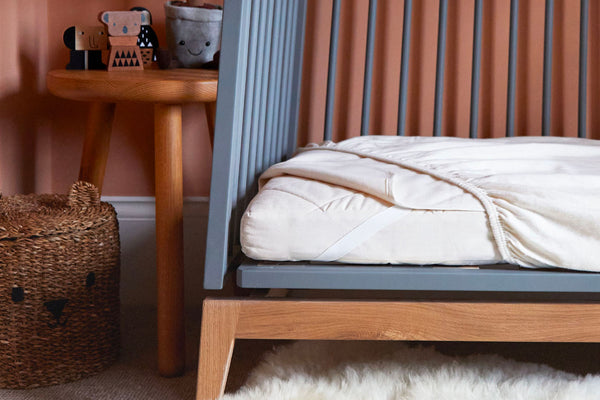
Babies are unable to regulate their own temperature, so it's important that the ambient temperature in their room isn't too warm or cool. Not only will this reduce the chance of early waking, it will also reduce the chance of SIDS.
The Lullaby Trust's advice is to keep the room temperature between 16 - 20ºc. We suggest complementing a room of this temperature with light, tucked in bedding, or a lightweight, well-fitting baby sleep bag.
All of Naturalmat Baby's Bedding and Bed Linen is made from 100% natural and organic materials, including GOTS Certified Organic cotton and locally-sourced organic wool. Natural materials are brilliant for regulating your little one's temperature, wicking away moisture and keeping them at a consistent temperature throughout the night.
If you'd like advice on how to check your baby's temperature, we recommend referring to the Lullaby Trust's Safer Sleep Advice.
Are they overtired?
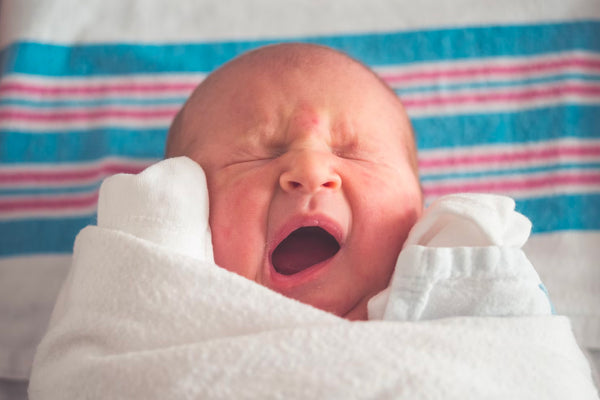
Another potential cause for your child waking up so early could be one we suffer from as adults too - overtiredness. With an under-developed circadian rhythm, babies are much more susceptible to over-tiredness. It's reasonable to think that overtired babies would 'catch up' on their sleep by sleeping longer in the morning, but that is not the case.
If a baby hasn't slept enough during the day, and is overtired when it comes to bedtime, this can actually cause them to wake early in the morning. This is due to the fact that when your little one is overtired, their body produces small amounts of a hormone called cortisol, which works in a similar way to adrenaline.
In turn, this means that their nighttime sleep will be more restless, leading to increased night waking - and eventual early morning waking. Therefore, we recommend making sure that your baby gets the right amount of daytime sleep with a regular nap routine, following their sleep cues.
Do they have a consistent bedtime routine?
To help encourage a more restful night's sleep, we would encourage a calm and consistent bedtime routine. For more helpful tips on creating a bedtime, read our Three Useful Tips on Creating a Bedtime Routine.
We hope that you find these tips useful and informative - if you're interested in learning more about how to tackle early rising, then please contact NEST.
About NEST
NEST is an Early Years Consultancy supporting you and your family from pregnancy right through to when your little one starts school. With a team of highly qualified consultants, NEST can support you from packing a hospital bag and preparing for the arrival of your baby, to infant feeding, weaning, sleep, toilet training, managing emotions, and so much more - either as a 1:1 consultation or through one of our workshops.
With a passionate team who ensure that you feel heard, supported and empowered, we work alongside you to offer advice and support which works for you and your little one.
